From Fear to Empowerment
Yesterday I had the pleasure of listening to Dr. Zack Bush on the Rich Roll Podcast and if you haven’t already listened, I encourage you to do so. It really made me think about this pandemic that we are collectively facing in a different light. Previously, I felt scared, anxious, and helpless. There was so much unknown about what the future holds and where we are all headed. But reframing this as a “pandemic of possibility” gives us back our power and makes us realize that even though we are not in control of everything, we certainly have control over a good many things. We have control over how we spend our money, where we get our food and what businesses we want to support, what we put in and on our bodies in the form of food, thoughts, products, and also what we put out into the world. We get to choose how we frame the realities of our world, how we show up for one another, what we choose as our line of work, the resources we are willing to share and so much more.
Being afraid when there is illness, death and uncertainty is a human response that is absolutely warranted. But being afraid can also paralyze you into inaction and make you feel helpless. And so we encourage you to take this opportunity to find ways to become autonomous again and not be overly dependent on a system that can be brought down so easily. Don’t get caught up in nationalistic sentiments without examining how your own system has contributed to the problem. Don’t believe everything you hear and read and learn to examine everything. Understand that the problem is not a virus but the way in which we have chosen to conduct our lives, both selfishly and egocentrically, disconnecting ourselves from the very ground we stand upon. Viruses have been and will always be here and the uncertainty of life will also always be here. Virus or not, life is not a guarantee and the truth is, the uncertainty of our future is always present.
Interestingly, though there have been feelings of confusion, sadness, and anxiety, there has also been a realization amongst many that growing food, building communities, tending to the land, reconnecting with nature, cooking, reconnecting with ourselves, finding pleasure in the simple things, getting creative, laughter, knowing the plants that grow around us, knowing about herbs, taking herbs, eating well, slowing down, resting, and so much more is crucial, satisfying, gives us a sense of autonomy and is the trajectory our world needs so desperately right now. If you feel as though there is not much you can control, then start with yourself because that is an area that is totally in your control.
One thing that you can and should control immediately is the health of the trillions of microbes living in your gut. Recent research has shown that the gut microbiome plays an essential role in the body’s immune response to infection and in maintaining overall health. As well as mounting a response to infectious pathogens like coronavirus, a healthy gut microbiome also helps to prevent potentially dangerous immune over-reactions that damage the lungs and other organs. These excessive immune responses can cause respiratory failure and death. (This is also why we should talk about “supporting” rather than “boosting” the immune system, as an overactive immune response can be as risky as an underactive one.)
A diverse microbiome is a healthy microbiome, containing many different species that each play their part in immunity and health. The fine details of the interactions between the gut microbiome and the immune system are not fully understood. But there seems to be a link between the makeup of the microbiome and inflammation – one of the hallmarks of the immune response. Gut bacteria produce many beneficial chemicals and also activate Vitamin A in food, which helps to regulate the immune system.
The best way to increase microbiome diversity is by eating a wide range of foods, plenty of fiber, and limiting processed foods. Eat plenty of fruit, vegetables, nuts, seeds and whole grains; healthy fats like high-quality extra virgin olive oil; and lean meat or fish. Avoid alcohol, salt, sweets and sugary drinks, and artificial sweeteners or other additives.
You can also support your microbiome by regularly eating natural yogurt and artisan cheeses, which contain live microbes (probiotics). Another source of natural probiotics are bacteria and yeast-rich drinks like kefir (fermented milk) or kombucha (fermented tea). Fermented vegetable-based foods, such as Korean kimchi (and German sauerkraut) are another good option.
As you are supporting your immune system with herbs like elderberry, echinacea, elderflower, Chinese skullcap, ginger, garlic and more, you should also be supporting your digestion with herbs like dandelion, burdock root, yellow dock, and other bitters. Take your digestive bitters 20 minutes before a meal. Drink green tea for its effects on oral health as well as anti-oxidant benefits and don’t forget to wash your hands with soap!
